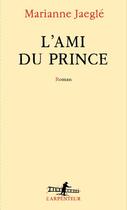-
Nombre de pages : (-)
-
Collection :
(-)
-
Genre :
(-)
-
Thème :
Non attribué
-
Prix littéraire(s) :
(-)
Résumé:
A top-down approach that enables readers to master and apply core principlesUsing an innovative top-down approach, this text makes it possible for readers to master and apply the principles of contemporary power electronics and electromechanic power conversion, exploring both systems and... Voir plus
A top-down approach that enables readers to master and apply core principlesUsing an innovative top-down approach, this text makes it possible for readers to master and apply the principles of contemporary power electronics and electromechanic power conversion, exploring both systems and individual components. First, the text introduces the role and system context of power conversion functions. Then the authors examine the building blocks of power conversion systems, describing how the components exchange power. Lastly, readers learn the principles of static and electromechanic power conversion.The Principles of Electronic and Electromechanic Power Conversion opens with a chapter that introduces core concepts in electrical systems and power conversion, followed by a chapter dedicated to electrical power sources and energy storage. Next, the book covers:Power, reactive power, and power factorMagnetically coupled networksDynamics of rotational systemsPower electronic convertersDC machinesAC machinesThe text offers readers a concise treatise on the basic concepts of magnetic circuits. Its simple approach to machines makes the principles of field-oriented control and space vector theory highly accessible. In order to help readers fully grasp power electronics, the authors focus on topologies that use a series transistor and diode combination connected to a DC source, a standard building block of todays power conversion systems. Problem sets at the end of each chapter enable readers to fully master each topic as they progress through the text.In summary, The Principles of Electronic and Electromechanic Power Conversion provides the most up-to-date, relevant tools needed by todays power engineers, making it an ideal undergraduate textbook as well as a self-study guide for practicing engineers.
Donner votre avis














